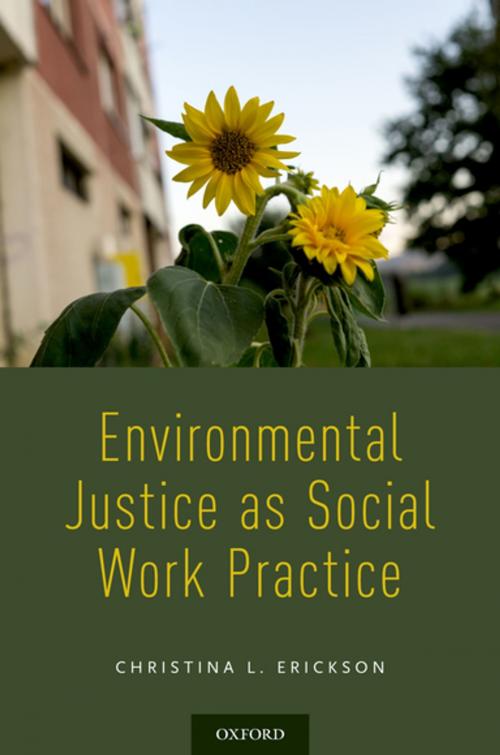Environmental Justice as Social Work Practice
Nonfiction, Social & Cultural Studies, Social Science, Social Work| Author: | Christina L. Erickson | ISBN: | 9780190871079 |
| Publisher: | Oxford University Press | Publication: | May 30, 2018 |
| Imprint: | Oxford University Press | Language: | English |
| Author: | Christina L. Erickson |
| ISBN: | 9780190871079 |
| Publisher: | Oxford University Press |
| Publication: | May 30, 2018 |
| Imprint: | Oxford University Press |
| Language: | English |
Environmental Justice as Social Work Practice places the natural environment as central to practice. Utilizing the Phases of Practice and micro to macro levels of practice, the book integrates neatly into a college semester course. Chapters cover important components of social work such as theory, ethics, conceptual foundations as well as distinct chapters on micro, mezzo, and macro practice. Each chapter expands the discipline's commitment to and applied efforts in the environmental movement while recognizing the unique contributions social work has to offer to ameliorate environmental inequities. Chapters include real-world stories from environmental social work practitioners, case studies, and boxed sections highlighting organizations and people who bridge the human and natural justice divide. Each chapter concludes with learning activities and critical thinking questions providing learning activities that map easily to a course syllabus. A matrix identifying the placement of educational competencies from the Council on Social Work Education is included. The textbook provides a framework for social work educators to bravely and competently teach environmental social work as a stand-alone college course or to incorporate into a traditional practice course.
Environmental Justice as Social Work Practice places the natural environment as central to practice. Utilizing the Phases of Practice and micro to macro levels of practice, the book integrates neatly into a college semester course. Chapters cover important components of social work such as theory, ethics, conceptual foundations as well as distinct chapters on micro, mezzo, and macro practice. Each chapter expands the discipline's commitment to and applied efforts in the environmental movement while recognizing the unique contributions social work has to offer to ameliorate environmental inequities. Chapters include real-world stories from environmental social work practitioners, case studies, and boxed sections highlighting organizations and people who bridge the human and natural justice divide. Each chapter concludes with learning activities and critical thinking questions providing learning activities that map easily to a course syllabus. A matrix identifying the placement of educational competencies from the Council on Social Work Education is included. The textbook provides a framework for social work educators to bravely and competently teach environmental social work as a stand-alone college course or to incorporate into a traditional practice course.















